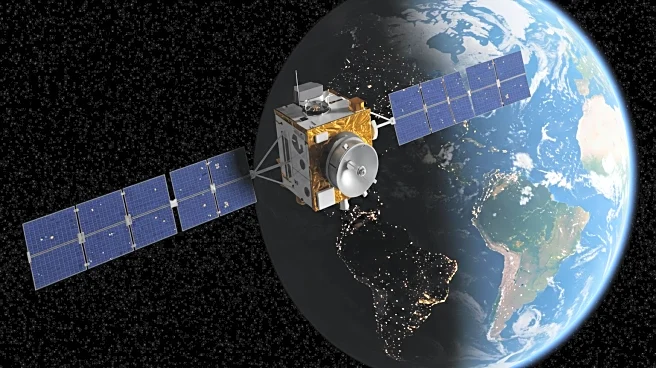What's Happening?
NASA is preparing to decommission several satellite missions that monitor climate change indicators, following budget cuts proposed by the Trump administration. The satellites, including the Orbiting Carbon Observatory (OCO) missions, are crucial for tracking greenhouse gas emissions and other climate data. The administration's budget proposal for fiscal year 2026 significantly reduces funding for NASA's Earth science programs, prompting concerns among scientists about the impact on climate research. The decommissioning process involves allowing the satellites to burn up in Earth's atmosphere, effectively ending their data collection capabilities.
Why It's Important?
The planned decommissioning of these satellites represents a significant setback for climate science, as they provide essential data for understanding and addressing global warming. The loss of these missions could hinder the U.S.'s ability to lead in climate research and create gaps in data collection that are vital for policy-making and environmental management. The decision to cut funding for these programs reflects broader political debates over climate science and the role of government in addressing environmental issues. The potential shift in leadership to other countries, such as Europe and China, underscores the global implications of these budget cuts.
What's Next?
Congress may still intervene by rejecting the proposed budget cuts and restoring funding for NASA's Earth science missions. Alternatively, public-private partnerships could be explored to maintain the satellites' operations, though this approach presents challenges in terms of data management and continuity. The scientific community is actively seeking solutions to preserve these missions, emphasizing the importance of continued climate monitoring. The outcome of these efforts will have lasting impacts on the availability of climate data and the U.S.'s role in global environmental research.
Beyond the Headlines
The decommissioning of climate satellites raises ethical and strategic questions about the prioritization of scientific research and the government's commitment to addressing climate change. The decision reflects broader political dynamics and the influence of climate skepticism within the administration. The potential loss of critical data could affect not only scientific understanding but also international collaborations and agreements aimed at mitigating climate impacts.










